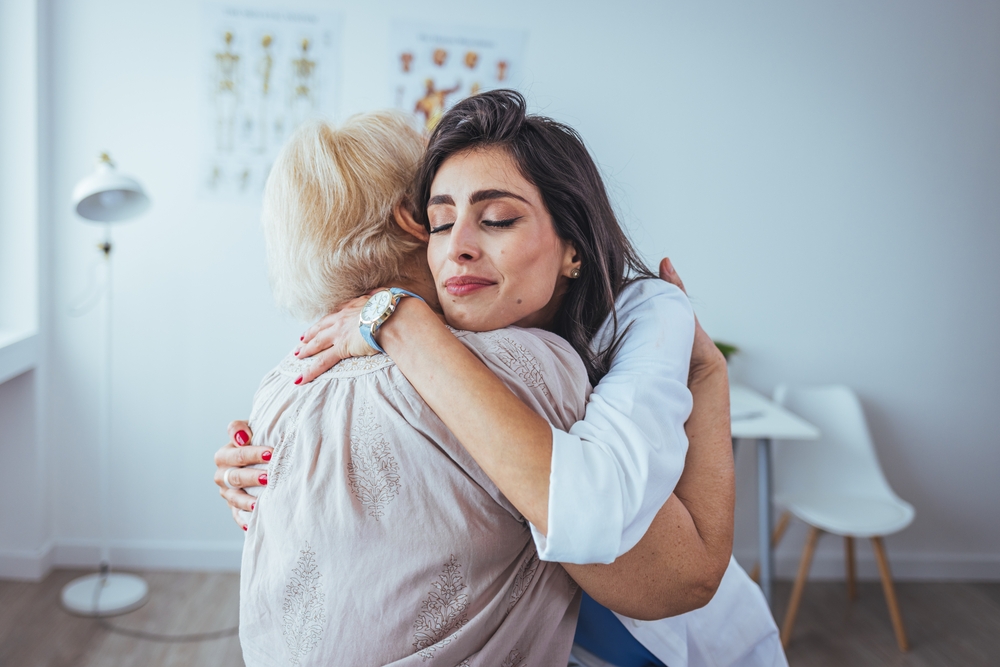When someone receives a prostate cancer diagnosis, the focus often centers on treatment options like surgery, radiation, or chemotherapy. While these approaches are crucial to cancer care, nutrition also plays an important role in supporting patients’ overall health. Prostate cancer nutrition counseling provides patients with a structured plan to manage their diet in a way that promotes healing, maintains strength, and potentially reduces the side effects of treatment.
Nutrition counseling is not a one-size-fits-all approach. Every patient has unique needs based on age, stage of cancer, type of treatment, and overall health. In San Antonio, where diverse communities live with varying dietary habits and access to resources, personalized nutrition counseling becomes especially valuable. With the guidance of a registered dietitian who understands cancer care, patients can learn how to balance their meals, stay energized, and reduce inflammation. These steps contribute to improving not only survival rates but also quality of life.
Nutrition also influences long-term outcomes. Research indicates that diets rich in plant-based foods, whole grains, and lean proteins may reduce the risk of prostate cancer progression. Meanwhile, limiting saturated fats, processed meats, and excessive dairy can support a healthier body environment. For patients in San Antonio, incorporating these principles into culturally familiar meals can make the transition easier and more sustainable.
The Unique Needs of Prostate Cancer Patients in San Antonio
San Antonio has a vibrant mix of cultural influences that shape dietary preferences. For many local families, meals are rich in traditional Mexican and Tex-Mex dishes, which may include higher levels of fats, sodium, and processed carbohydrates. While these foods are flavorful and comforting, they may not align with the nutritional guidelines often recommended for prostate cancer patients. This is where nutrition counseling bridges the gap between cultural traditions and health needs.
Nutrition counselors in San Antonio work with patients to adapt traditional recipes into healthier versions. For example, swapping fried tortillas for baked alternatives or incorporating more vegetables into stews and casseroles can make meals more nutrient-dense without sacrificing cultural identity. This personalized approach helps patients feel connected to their heritage while improving their health.
The city also faces unique healthcare challenges. Prostate cancer disproportionately affects older men, and San Antonio has a significant population of aging veterans and retirees. Many patients may also be managing additional health conditions such as diabetes, obesity, or cardiovascular disease, which are prevalent in the region. Nutrition counseling takes these co-existing conditions into account, ensuring that dietary strategies address the whole person rather than just the cancer.
Access to resources is another consideration. Some neighborhoods in San Antonio have limited access to fresh produce or rely heavily on convenience stores. Counselors can help patients identify affordable and realistic options for purchasing or preparing nutritious meals. By tailoring advice to each patient’s circumstances, prostate cancer nutrition counseling makes a meaningful difference in daily life.
Enhancing Cancer Care Through Nutrition Counseling
Cancer treatment often places significant stress on the body, and side effects such as fatigue, nausea, and weight changes can make eating difficult. Nutrition counseling helps patients manage these challenges by providing practical strategies for meal planning and symptom relief.
For instance, if radiation therapy causes gastrointestinal discomfort, a counselor might recommend smaller, more frequent meals that are easier to digest. If chemotherapy leads to changes in taste, they may suggest experimenting with herbs and spices to improve flavor without adding excessive salt or sugar. These small adjustments can make eating enjoyable again, which is essential for maintaining adequate nutrition during treatment.
Nutrition counseling also supports immune function. A balanced diet that emphasizes antioxidants, vitamins, and minerals helps the body repair tissues and fight infection. This is particularly important for patients whose immune systems are compromised by treatment. In San Antonio, where seasonal allergies and respiratory conditions are common, strengthening the immune system through diet is an added advantage.
Hydration is another critical component of cancer care. Counselors emphasize the importance of adequate fluid intake to flush toxins from the body, maintain kidney function, and prevent dehydration. They often recommend water, herbal teas, and broths, while cautioning against sugary drinks that can contribute to weight gain or exacerbate diabetes.
By integrating nutrition counseling into cancer care, patients in San Antonio gain a more holistic approach to healing. Treatment becomes more manageable, recovery is often smoother, and long-term health outcomes are improved.
Psychological and Emotional Benefits of Nutrition Counseling
The impact of nutrition counseling extends beyond physical health. A prostate cancer diagnosis can cause emotional distress, anxiety, and uncertainty. Patients may feel a loss of control over their bodies and their future. Nutrition counseling restores some of that control by giving patients actionable steps they can take to support their well-being.
Learning how to make healthier food choices provides a sense of empowerment. Instead of feeling passive during treatment, patients can actively contribute to their recovery. This empowerment often leads to better adherence to treatment plans and improved overall outlook.
In addition, food plays a central role in family and community life, especially in a culturally rich city like San Antonio. Sharing meals with loved ones is a source of comfort and connection. Nutrition counseling helps patients maintain these traditions while aligning them with their health goals. By involving family members in the process, counselors encourage a supportive environment that benefits everyone at the table.
There is also a psychological benefit to reducing uncertainty. Many patients turn to the internet or anecdotal advice for dietary guidance, which can lead to confusion or misinformation. A professional counselor provides evidence-based recommendations, reducing stress and ensuring that patients follow safe and effective practices. This clarity contributes to peace of mind during an otherwise overwhelming journey.
Why San Antonio Is Leading the Way in Integrative Cancer Care
San Antonio is home to world-class medical institutions and cancer care centers that emphasize a comprehensive approach to treatment. Nutrition counseling has become an integral part of these programs, reflecting a growing recognition that health outcomes depend on more than just medical interventions.
Local hospitals and cancer centers often employ registered dietitians who specialize in oncology nutrition. These professionals collaborate closely with oncologists, nurses, and therapists to create individualized care plans. This team-based approach ensures that dietary strategies align with the medical treatments patients receive.
San Antonio also benefits from community resources that promote healthy living. Farmers’ markets, wellness programs, and support groups provide patients with opportunities to practice what they learn in counseling sessions. By connecting patients to these resources, counselors extend the reach of care beyond the clinic.
Furthermore, research initiatives in the region continue to explore the link between nutrition and cancer outcomes. Participation in clinical trials or educational programs allows patients to stay informed about emerging strategies in cancer nutrition. This access to cutting-edge knowledge positions San Antonio as a leader in integrative cancer care, where nutrition counseling is recognized as a vital tool for supporting prostate cancer patients.
The city’s commitment to holistic healthcare reflects its broader mission to improve quality of life for all residents. By investing in services like nutrition counseling, San Antonio ensures that prostate cancer patients receive not only advanced medical treatment but also the everyday support needed to thrive.
Conclusion
Prostate cancer nutrition counseling offers significant benefits for patients in San Antonio. It provides personalized guidance that addresses cultural preferences, co-existing health conditions, and access to resources. By helping patients manage treatment side effects, maintain strength, and support immune function, nutrition counseling enhances the effectiveness of cancer care.
Beyond the physical advantages, nutrition counseling also delivers psychological comfort, empowerment, and clarity. Patients regain a sense of control and find ways to maintain their cultural and family traditions while prioritizing health.
San Antonio stands out as a city that values integrative cancer care, with institutions and professionals who recognize the critical role of nutrition in healing. For prostate cancer patients, this combination of medical expertise and personalized nutrition support creates a pathway to better outcomes and improved quality of life.
Nutrition counseling is not merely an add-on to cancer treatment; it is a core component of comprehensive care. For patients in San Antonio, embracing this resource can make a profound difference in their journey through prostate cancer and beyond.
 Rohit Kapoor, MD
Rohit Kapoor, MD

